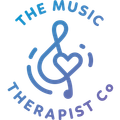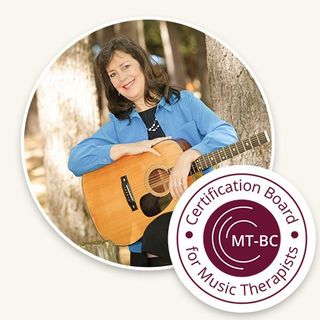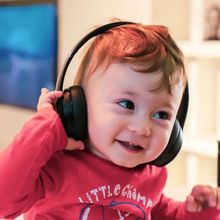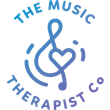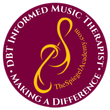Hi, I'm Sheila.
Music holds such power. It can unlock old memories and create new ones. It can unite strangers in song. It is the soundtrack of our lives.
Music is also a remarkable tool that can stimulate the brain, develop new neural pathways, and spur physical development.
Music is also a remarkable tool that can stimulate the brain, develop new neural pathways, and spur physical development.
And through Music Therapy, music slows the effects of dementia, assists developmentally disabled children learn to communicate, and helps adolescents learn coping skills.
I invite you to explore how you or a loved one can experience the power of music through Music Therapy.
Music acts like a magic key, to which the most tightly closed ♥ opens.
- Maria von Trapp
You’re likely visiting my site because you or a loved one are suffering, physically, emotionally, or mentally. And you might feel there’s nothing that can help.
Especially something as simple as music.
I understand.
Yes, making music is a talent that not all us possess. But more importantly, music – whether we’re hearing it or making it – is a remarkable tool.
When we hear music, our brains light up, creating and building new pathways and new connections. I’ve seen it in neuroimaging.
But do you know what else I’ve seen?
The smile that lights up a mother’s face when she hears her child, diagnosed as non-verbal, say “mama” for the first time.
I’ve seen happiness and joy on the faces of lost and confused dementia patients.
And I’ve seen peace restored to families previously torn apart by the inability to communicate with each other.
I’ve seen powerful change through the power of music. And you can see it, too.
What is Music Therapy?
Music Therapy is the clinical, evidence-based and non-medicinal use of music to accomplish individualized goals within a therapeutic relationship by a credentialed professional who has completed an approved Music Therapy program.
Take the quiz
Music Therapy is an established health profession in which music is used to address physical, emotional, cognitive, and social needs of individuals.
Treatment may include creating, singing, moving to, and/or listening to music. One does not need to be a musician or have musical training to receive Music Therapy.
Is Music Therapy right for you?
Examples of changes we've seen through Music Therapy
- Promote wellness, mindfulness, and positive mental health
- Manage stress, anxiety, depression, and PTSD
- Alleviate pain
- Ease labor and childbirth
- Express feelings
- Minimize sleep disorders
- Enhance memory and retention
- Improve communication
- Promote physical rehabilitation
- Cope with the effects of abuse, trauma, and bullying
- Develop language and fine motor skills
Who can benefit from Music Therapy?
Music Therapy provides avenues for communication that are helpful to those who find it difficult to express themselves in words.
People of all ages and of all walks of life have benefited from Music Therapy.
People of all ages and of all walks of life have benefited from Music Therapy.
- Adults
- Children and adolescents
- Veterans
- Hospice/hospital patients
- Expectant mothers
- Couples
What Our Clients Say
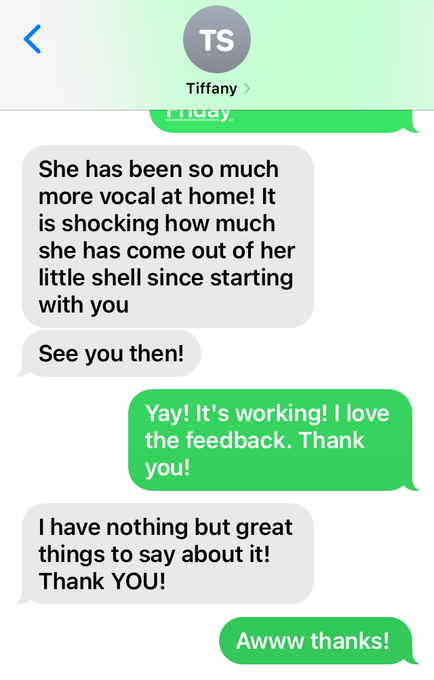
Sheila is wonderful with my son. She enthusiastically draws him into musical activities that foster his creativity and self-esteem. He has shown definite improvements in all areas addressed in his sessions.
Her approach is skillful and intuitive as she assesses and addresses his individual needs. And he really looks forward to his sessions!
-A Happy Mom
My 4-year-old daughter sees Sheila weekly and they work on specific skills, such as hand control. Sheila puts 10-15 hand shakers in a bucket, which my daughter pulls out, then outs back, one at a time. At my daughter’s last skills test, the Occupational Therapist was surprised at how much her hand control had improved – she had never before seen my daughter deliberately pass objects between her hands or hold an object for any length of time. The OT feels that her improvements are due to Sheila.
Sheila also has my daughter strumming a guitar and touching the keys on a keyboard. My daughter’s teachers have noticed she can better hold a jumbo pencil, crayon, or paintbrush. She lights up when she recognizes a song, and her attention span has dramatically improved. I have not seen my daughter respond to other therapies as she does to music therapy. It is the highlight of her week.
-A Thankful Mom
Truly, I cannot say enough about Sheila and the work she does with her whole heart. First and foremost, she cares; you will never just be a client; you are friend and family from the very beginning. I have never felt that I couldn’t ask for her help at the last moment. I wouldn’t be who I am today without Sheila’s help.
-Matt B.
Our Process
We'll Meet
Once you book an appointment, we'll discuss your challenges and goals and determine if Music Therapy is a good next step for you or your loved one.
